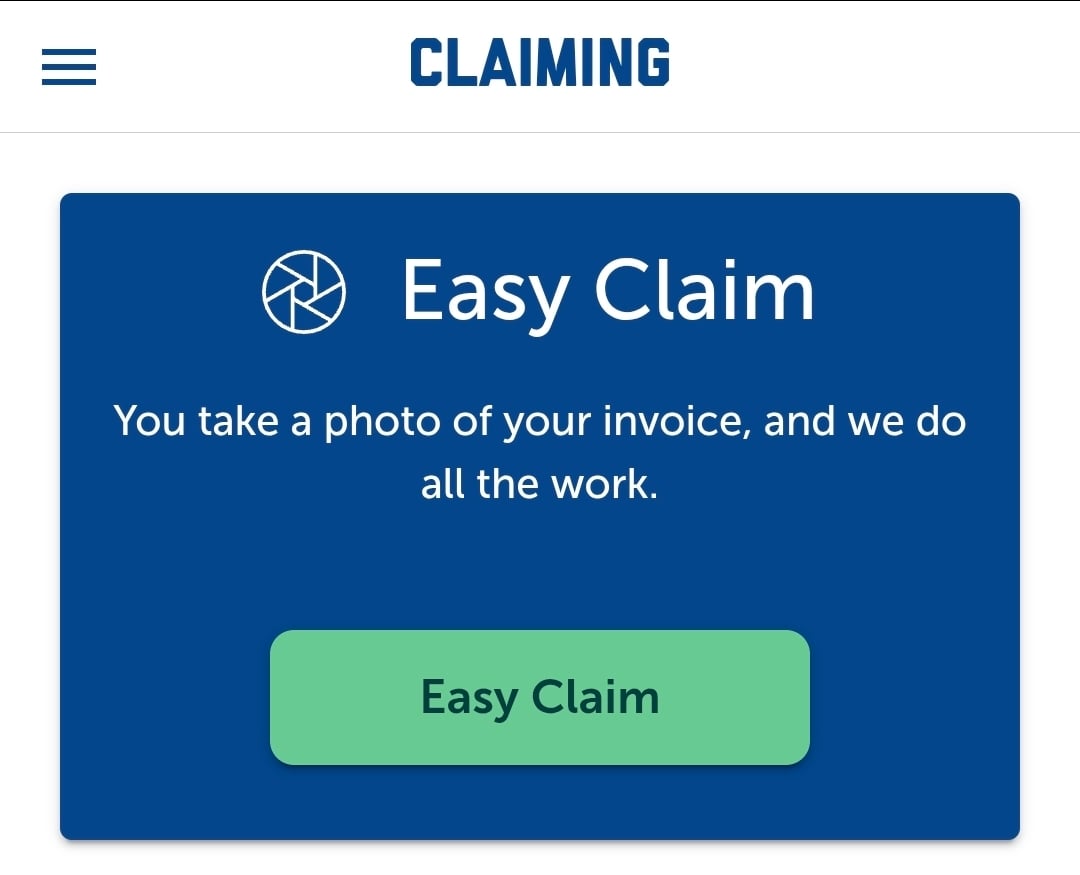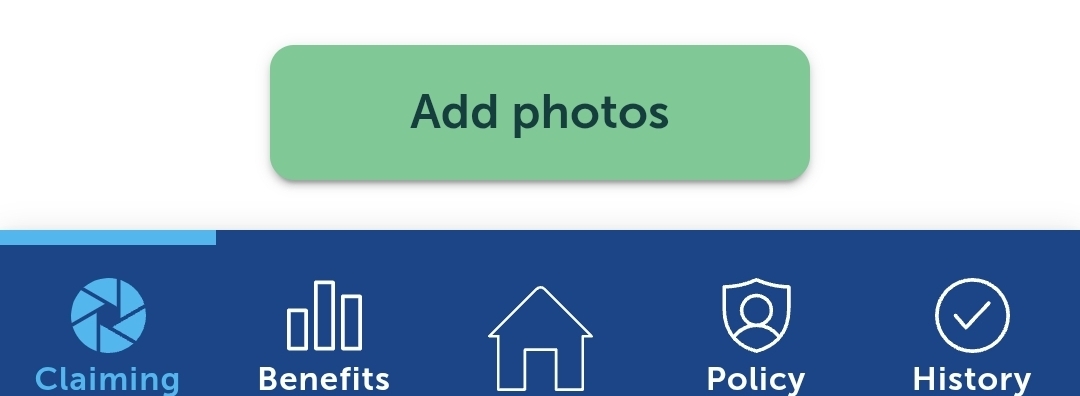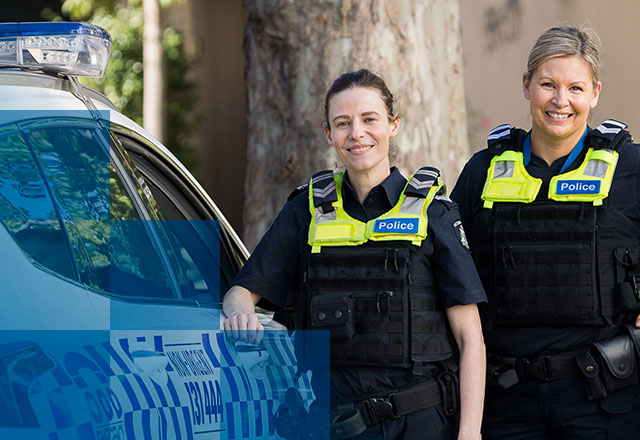
On this page
- How to claim pharmacy benefits
- What's covered by pharmacy benefits
- Reasons why pharmacy benefits might not be claimable;
- Ozempic, Wegovy and Mounjaro
- In Vitro Fertilisation (IVF) medication
- Vaccinations
How to claim pharmacy benefits
With Police Health's Rolling Extras cover or Gold Combined cover, you can claim some pharmacy items to reduce your out-of-pocket costs*.
To help, here's how you can claim.
- Get a Pharmacy Tax Invoice from your pharmacist with the following;
- Patient
- Description of the pharmacy item;
- Generic / brand
- The strength (for example 1mg, or 0.1%)
- The form (tablet, capsule, cream, or injection)
- The quantity supplied
- Price charged for each pharmacy item
- Pharmacy name, address and PBS approval number
- Name of the prescribing doctor
- Prescription date and dispensed date
- Script number
- If your Pharmacy Tax Invoice is printed, take a photo of it. If it's emailed as a PDF, download it
- Login to the Police Health App (if you haven't already, download the app)


- Select the Claiming icon from the bottom menu

- Select Easy Claim

- Select Add photos

- Select whether it was or wasn't related to an inpatient hospital admission
- Select ‘Select image or PDF'
- Select from the following; Load from Library (you've already taken a photo), Use Camera (take a photo on your phone) or Select PDF
- Select whether the account has been paid (Have you already paid for the pharmacy items you're claiming?)
- Select ‘Next’
- Check your details are correct, read the terms of submitting a claim and check the checkbox

- Select Submit Claim
Question? Contact our friendly team for more help
You can also claim on the spot at any National Pharmacies store. Simply show your membership card when giving your prescription, and their staff will do the rest.
What's covered by pharmacy benefits
Under our Rolling Extras cover or Gold Combined cover you’re eligible to receive pharmaceutical benefits towards prescription items that aren’t eligible for subsidy under the Government’s Pharmaceutical Benefits Scheme (PBS).
These are called Non-PBS, and don’t fall under the PBS - an Australian Government subsidy scheme that lowers the cost of prescription medicine.
Health funds are not permitted to pay benefits towards medicines that receive a government subsidy. Other terms and conditions apply, and you can find more information in our Pharmacy Benefits Guide.
Benefit: See what's covered under our pharmacy benefits
Why a benefit wasn't paid for your claim
There's a range of government regulations for private health insurers that say which pharmacy items they can benefits for.
Health insurers like Police Health also place their own conditions on claiming, and to help we've laid out the most common reasons.
Pharmacy items that cost under $23 can’t be claimed
One of our conditions of claiming pharmacy benefits is that the pharmacy item is $23 or more, with a maximum benefit of $60 per pharmacy item.
Pharmacy items listed on the PBS can't be claimed
Once the government lists a prescription item for subsidy on the PBS and when the medication meets the PBS subsidy criteria for the patient, Police Health will be unable to pay a pharmacy benefit.
This includes restricted and authority required prescription items.
For a prescription item appearing on the PBS list with a restriction or authority requirement for subsidy on the PBS, Police Health may pay a pharmacy benefit for the supply of the prescription item where the person does not meet the restriction or authority requirements.
Pharmacy items classified as an unscheduled S2 or non-recordable S3 can’t be claimed
One restriction that the government place on health insurers like Police Health is that we can only pay benefits for drugs that meet the definition of a prescribed pharmaceutical benefit.
These are referred to as;
- S4 medicines = Prescription-only drugs
- S8 medicines = Controlled drugs (like strong opioids)
- S3 recordable medicines = Pharmacist-only medicines that must be recorded (such as some emergency contraception or stronger cold-and-flu medicines)
These categories involve professional oversight by a pharmacist or doctor, which makes them eligible under private health insurance law.
Medicines that are unscheduled, S2 (Pharmacy Medicine), or non-recordable S3 — like common painkillers, vitamins, or cold tablets — are considered self-care or general retail items.
Since they don’t require a prescription or special recording, the government classifies them as non-health services for insurance purposes.
Health insurers can't pay benefits for these.
Non-prescription items can’t be claimed
Medicines that are unscheduled, S2 (Pharmacy Medicine), or non-recordable S3 — like common painkillers, vitamins, or cold tablets — are considered self-care or general retail items.
Since they don’t require a prescription or special recording, the government classifies them as non-health services for insurance purposes.
Health insurers are legally prohibited from paying benefits for these.
Can you claim Ozempic, Wegovy and Mounjaro?
Yes, Police Health members can claim for the popular medications Ozempic, Wegovy and Mounjaro.
However, there may be other ways to use your health cover to help manage type 2 diabetes and your weight.
We've broken down how these popular medications work, and other alternatives available with your Police Health cover.
Read more about Ozempic, Wegovy and Mounjaro here
IVF medications and our cover
Police Health does pay benefits for IVF medication that aren't PBS listed, however term and conditions do apply.
Please refer to this section on this page for more detail, and please be aware that waiting periods, limits and other terms and conditions apply.
Vaccinations
If you have our Rolling Extras cover or Gold Combined cover, you can claim vaccines if they meet specific criteria.
Eligible vaccines must be;
- Prescribed
- Supplied by a registered pharmacist in a private practice. Or by a registered medical practitioner who's allowed to dispense pharmaceuticals.
- Not be government subsidised
You can also claim vaccines that need a prescription but are not listed on the PBS. This includes travel vaccines and other non-PBS-subsidised immunisations.
